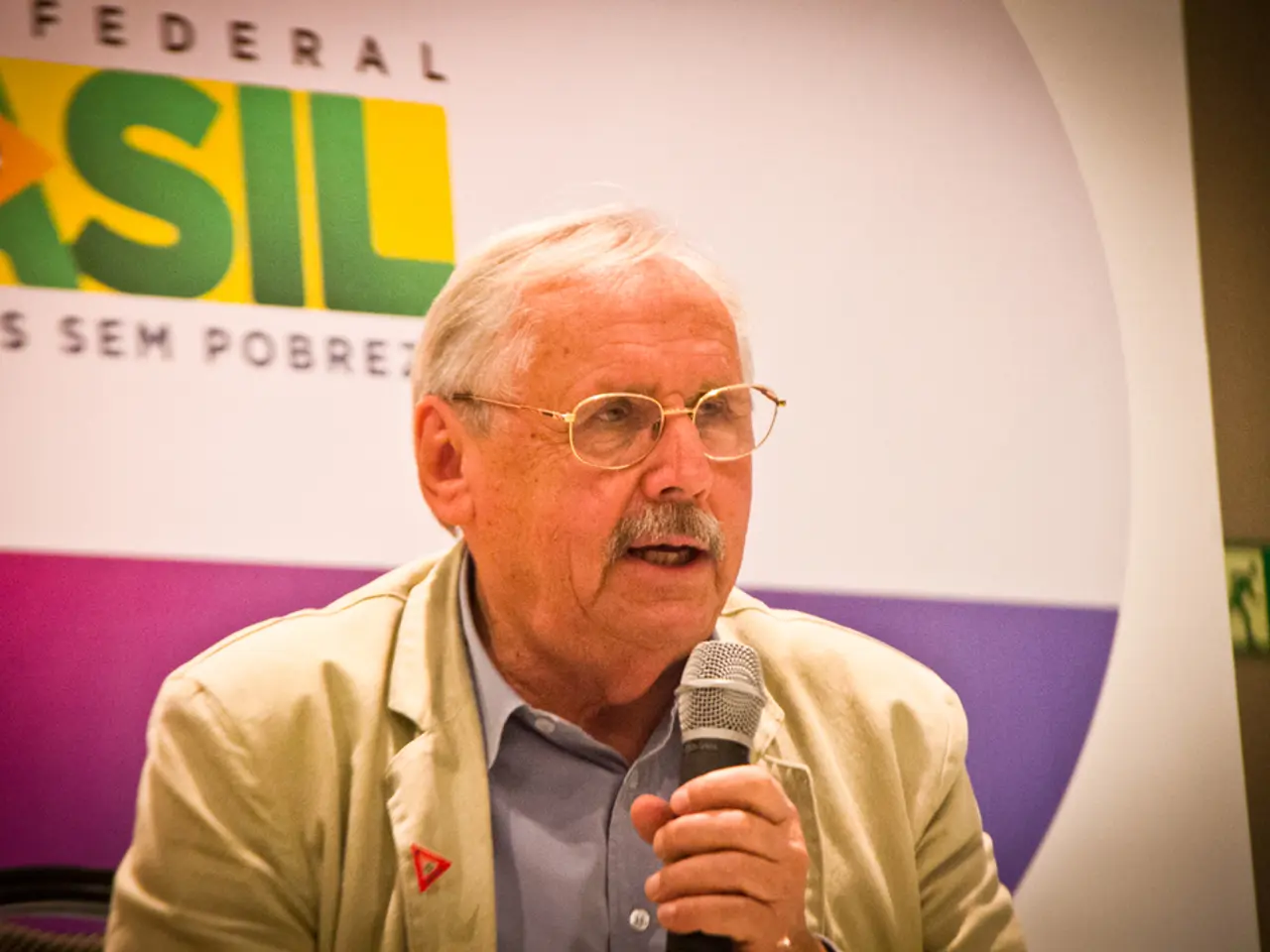Lawmakers advocate for public involvement in budget discussions and deliberations at congressional meetings
Philippines Pushes for Transparent Budget Process with Civil Society Participation
In a bid to enhance transparency and promote a people-centered budget process, House Resolution 94 in the Philippines is currently pushing to allow civil society groups to participate as non-voting observers in all public budget hearings. The resolution, filed by House Speaker Ferdinand Martin Romualdez, aims to make the budget process more open and inclusive [1][3][5].
This move comes in response to criticisms of the 2025 budget process, which faced allegations of undisclosed insertions and discrepancies, including large unprogrammed funds and blank line items, raising concerns about transparency and accountability [1][3]. The proposed 2026 national budget, set to be significantly larger (P6.793 trillion, a 7.4% increase), makes transparency efforts especially relevant [3].
Under the proposed measure, the Committee on Appropriations, in coordination with the Committee on People's Participation, will determine the eligibility, accreditation process, and scope of civil society groups' participation in accordance with House rules. The proposal aims to bring the critical expertise of people's organizations working in key sectors, such as education, public health, social welfare, environment, agriculture, and local governance into the budgeting process [1][3][5].
President Ferdinand Marcos Jr., in his fourth State of the Nation Address (Sona), stated that for the 2026 national budget, he will ensure that the General Appropriations Act (GAA) is fully aligned with the National Expenditures Program [2]. Marcos added that he will not approve any budget that is not aligned with the government's plan for the Filipino people. He also said that he will return any proposed GAA that is not fully aligned with the national expenditures program, and he is willing to do this even if it results in a reenacted budget [2].
Speaker Romualdez also emphasized that ensuring the participation of civil society in hearings will make the budget process transparent and accountable to the people. He stated that the proposed measure aligns with President Marcos Jr.'s calls for better fiscal governance and his administration's efforts to realign government spending toward key priorities such as infrastructure, health, and digitalization [4].
Members of both the upper and lower chamber of Congress have filed a joint resolution to open all bicameral conference committee deliberations on the national budget to the public. The joint resolution also requires the bicameral conference panel to produce a matrix comparing the differences between the House of Representatives' and the Senate's versions of the GAA and how these differences were resolved [1][3].
Speaker Romualdez expressed that they want a budget process that truly listens to the people, with citizens having a voice right from the start of the budget deliberations. The authors are aiming to have the measure adopted before the start of the 2026 budget cycle [1][3][5].
[1] Rappler. (2023, March 20). House resolution aims to institutionalize civil society's observer role in budget deliberations. Retrieved from https://www.rappler.com/nation/government/2917604-house-resolution-aims-to-institutionalize-civil-societys-observer-role-in-budget-deliberations
[2] Inquirer.net. (2023, July 25). Marcos vows to reject budget not aligned with gov't plan for Filipino people. Retrieved from https://newsinfo.inquirer.net/1642382/marcos-vows-to-reject-budget-not-aligned-with-govt-plan-for-filipino-people
[3] BusinessWorld. (2023, March 20). House pushes for civil society participation in budget deliberations. Retrieved from https://www.bworldonline.com/house-pushes-for-civil-society-participation-in-budget-deliberations/
[4] Manila Bulletin. (2023, July 25). Marcos Jr. vows to reject budget not aligned with gov't plan for Filipino people. Retrieved from https://business.mb.com.ph/2023/07/25/marcos-jr-vows-to-reject-budget-not-aligned-with-govt-plan-for-filipino-people/
- The Filipino government, through House Speaker Ferdinand Martin Romualdez, is advocating for civil society groups to participate in budget hearings, aiming to make the budget process more open and inclusive.
- President Ferdinand Marcos Jr. has stated that for the 2026 national budget, he will ensure the General Appropriations Act (GAA) is fully aligned with the National Expenditures Program, and will not approve any budget that is not aligned with the government's plan for the Filipino people.
- The proposed measure, which allows civil society groups to participate as non-voting observers in all public budget hearings, also aims to bring the critical expertise of people's organizations working in key sectors such as education, public health, social welfare, environment, agriculture, and local governance into the budgeting process.
- Members of Congress have filed a joint resolution to open all bicameral conference committee deliberations on the national budget to the public, and to produce a matrix comparing the differences between the House of Representatives' and the Senate's versions of the GAA and how these differences were resolved.







